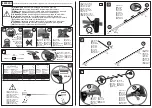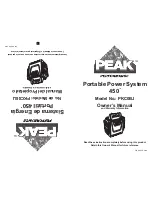
CONTINUED
Many states, Canadian provinces and
territories allow a child one year of
age or older who also meets the
minimum size and weight
requirements to transition from a
rear-facing child seat to a forward
facing seat. Know the requirements
where you are driving and follow the
child seat instructions. Many experts
recommend use of a rear-facing seat
up to age two, if the child’s height
and weight are appropriate for a
rear-facing seat.
Of the different seats available, we
recommend those that have a five-
point harness system as shown.
We also recommend that a small
child use the child seat until the child
reaches the weight or height limit
for the seat.
We strongly recommend placing a
forward-facing child seat in a back
seat, not the front.
If the vehicle seat is too
far forward, or the child’s head is
thrown forward during a collision, an
inflating airbag can strike the child
with enough force to cause very
serious or fatal injuries.
Even with advanced front airbags
that automatically turn the
passenger’s front airbag off (see
page
), a back seat is the safest
place for a small child.
30
Protecting Infants and Small Children
Protecting Small Children
Child Seat Type
Child Seat Placement
Placing a f orward-f acing child seat in
the f ront seat of a vehicle equipped
with a passenger’s airbag can be
hazardous.
Dr
iv
er
and
P
asseng
er
Saf
e
ty
39
10/06/18 15:46:56 31TA5630_044
2011 Accord Sedan
















































